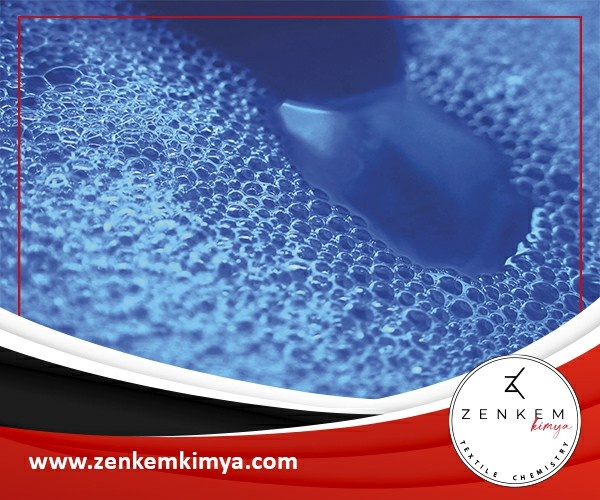How Defoamers Can Save Time and Money in Industrial Production
How Defoamers Can Save Time and Money in Industrial Production
Blog Article
Discover the Leading Benefits of Utilizing Defoamers in Industrial Processes
The use of defoamers in commercial processes provides a variety of compelling benefits that can enhance operational effectiveness and product high quality. By successfully regulating foam production, these agents not only maximize material circulation yet also contribute to significant price reductions and boosted sustainability. The ramifications of taking on defoamers might be more profound than at first viewed.
Enhanced Process Performance
Enhancing commercial processes usually entails dealing with frothing problems, which can impede functional efficiency. Foam formation can interfere with the proper performance of devices, reduce the reliable utilization of resources, and complicate the surveillance of important specifications. By applying defoamers, industries can properly minimize these issues, bring about streamlined operations and boosted performance.
Defoamers job by destabilizing the foam structure, enabling for fast collapse and significant reduction in foam volume. This activity not only enhances the flow of products via tools, such as pipes, activators, and mixers, but additionally decreases interruptions caused by foam overflow. Devices downtime is reduced, permitting for an extra constant and reliable manufacturing procedure.
Additionally, the use of defoamers can cause decreased energy consumption. With much less foam to manage, compressors and pumps can operate more effectively, causing reduced functional expenses and a total renovation in process throughput. Inevitably, the critical usage of defoamers not only addresses immediate frothing obstacles but also adds to a much more efficient commercial ecosystem, promoting an affordable advantage in a demanding market.
Improved Item Top Quality
The combination of defoamers in commercial processes plays an essential role in improving item quality. By properly managing foam development, defoamers add to the consistency and uniformity of end products. Excessive foam can result in aeration, which negatively affects the appearance and security of solutions, particularly in sectors such as food and beverages, pharmaceuticals, and finishes.

In addition, defoamers assist in far better blending and diffusion of ingredients, bring about homogeneity in formulations. This is vital in applications where accurate ingredient proportions are critical for efficiency and security. Furthermore, the removal of foam can reduce the threat of contamination throughout manufacturing, further safeguarding item honesty.
Ultimately, by improving product high quality, defoamers not only improve customer contentment yet additionally reinforce brand online reputation. Their duty in keeping high-quality standards underscores their relevance in contemporary industrial processes.
Price Decrease Benefits
Executing defoamers in industrial processes can cause significant expense reduction benefits. By effectively managing foam formation, defoamers reduce item loss throughout manufacturing, consequently maximizing material usage. This reduction in waste equates directly right into reduced raw product expenses, boosting general operational effectiveness.
In addition, continue reading this using defoamers can reduce power usage. Extreme foam can hinder tools efficiency, causing raised power needs to maintain manufacturing degrees. By alleviating foam, you can try here defoamers assist in smoother operations, enabling equipment to run more successfully and decreasing energy expenditures.

Additionally, defoamers can reduce handling times. By using defoamers, markets can improve their procedures, leading to faster turn-around times and boosted throughput.

Environmental Effect Reduction
In industrial processes, using defoamers plays an important role in mitigating environmental impacts connected with foam generation. Foam can result in substantial operational inefficiencies, causing increased emissions and waste generation. By efficiently managing foam, defoamers aid maintain procedure performance, consequently lowering the general environmental footprint of operations.
Furthermore, extreme foam can overflow containment systems, leading to spills that may infect dirt and water sources. Defoamers aid reduce this risk by ensuring that foaming does not go beyond suggested limitations, advertising conformity with ecological laws. This proactive approach not just safeguards ecosystems yet likewise improves the sustainability of commercial techniques.
Furthermore, the usage of defoamers can reduce power usage in different processes. defoamers. Reducing foam development reduces the need for added energy-intensive procedures, such as boosted anxiety or pumping, which may or else be needed to manage foam. The fostering of defoamers lines up with wider sustainability goals by promoting power performance while decreasing the carbon impact of commercial tasks.
Inevitably, integrating defoamers into industrial operations is a calculated step that supports ecological stewardship and responsible resource monitoring.
Flexibility Across Industries
Throughout different markets, defoamers demonstrate amazing flexibility, adapting to the specific article needs of varied applications. In the food and drink industry, for circumstances, defoamers are critical to keeping item quality by preventing foam development during handling, which can influence texture and taste. In the pharmaceutical industry, defoamers guarantee the stability of solutions, boosting product efficiency and uniformity.
In the chemical production realm, defoamers facilitate smoother operations by lessening foam in response vessels, thus improving return and lowering downtime. The paper and pulp sector depends on defoamers to boost the effectiveness of pulp handling and paper production, guaranteeing ideal product stability. Additionally, in wastewater treatment centers, defoamers play a vital function in regulating foam during aeration processes, bring about enhanced treatment results.
The adaptability of defoamers includes the oil and gas industry, where they aid in handling foam in boring fluids and manufacturing processes. By customizing solutions to fulfill details industry needs, defoamers serve as essential devices that enhance operational performance, product high quality, and overall process performance throughout a wide variety of markets. Their adaptability underscores their value in contemporary commercial applications.
Final Thought
Finally, the utilization of defoamers in industrial processes offers numerous advantages, consisting of boosted efficiency, improved item top quality, considerable price decreases, and positive ecological impacts. Their capacity to successfully control foam formation adds to functional continuity and resource optimization. The flexibility of defoamers across varied sectors emphasizes their important duty in advertising sustainable practices and earnings. The integration of defoamers stands for a tactical method to resolving difficulties related to foam administration in numerous manufacturing atmospheres.
Ultimately, the tactical usage of defoamers not only addresses instant frothing challenges yet additionally adds to a much more effective commercial ecological community, cultivating a competitive advantage in a demanding market.
In industrial procedures, the usage of defoamers plays a vital role in mitigating ecological effects connected with foam generation. By effectively managing foam, defoamers assist keep process efficiency, thereby minimizing the total ecological impact of operations.
Furthermore, in wastewater treatment centers, defoamers play a vital duty in regulating foam during oygenation procedures, leading to enhanced treatment results.

Report this page